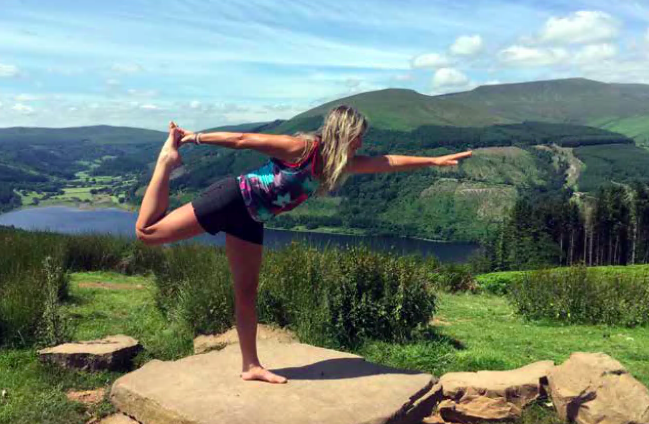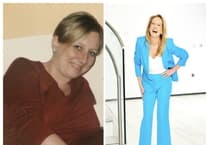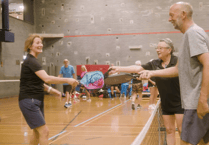What with one thing and another, I seem to have forgotten to write a few fitness columns. The good news is that I haven’t forgotten to ‘keep fit’ and train even when I really haven’t felt like it. Those are the very times that some form of exercise will help even more. It’s a bit like meditation. As the saying goes, ’You should meditate for half an hour each day – and when you haven’t got time to do that, or don't feel like it, then meditate for an hour.’
As an avid reader and self-confessed researcher, I am always looking for ways to improve my health, as (as corny as it may sound) I believe ‘good health is true wealth’, and it just enables you to life a more rewarding life on a daily basis. If you doubt this, then just see how rubbish a bad back, or virus or even a cold can make you feel, and how much harder everything suddenly is.
Despite all the things I have read about, including things like IV vitamin drips, oxygen tents and other expensive bio-hacks, it always strikes me that the main ways to achieve and maintain optimum health are still all free of charge.
Movement is still the most underestimated way to health and therefore happiness. It doesn't have to be strenuous exercise, just regular and aim to get your heart rate up a little more each time. Strength training will also benefit most of us - in our daily tasks but also to keep our bones strong and healthy too. I've never understood the term, 'big boned' - have you ever seen a big boned skeleton - but perhaps I should coin the phrase 'strong boned'.

Breathing techniques are numerous and easily accessible on line. Whilst we take breathing for granted as we all do it, it can be used intentionally in several different ways to remedy all sorts of issues from poor sleep, anxiety and even dentistry problems. Mouth breathing can add to all sorts of health issues, and we should all ‘know’ about the benefits of nose breathing as an alternative. It’s something we can train ourselves to do and is very much worth the effort. And if you are thinking, ‘I’ve got this, I can breathe through my nose without any tuition,’ then look it up, it’ll take your breath away (pun intended).
Being dehydrated is one of the most common reasons for things like brain fog, achy joints and headaches (although so is the menopause, and a number of other things), and is one of the simplest things to remedy and address before you think the worse aliment-wise. If you pinch the skin on the back of your hand and stays in a ridge, being slow to return to normal then you are dehydrated. The alarming statistics are that whilst most people can tolerate a 3-4% decrease in total body water without difficulty or adverse health effects, a slight rise to 5-8% decrease can cause fatigue and dizziness. A loss of over 10% of total body water can cause physical and mental deterioration, accompanied by severe thirst and wait for it - death occurs with a 15 and 25% loss of body water. They are fine margins.
I have just read a book that advised although we are recommended to drink around eight glasses of water a day, retention of that water is seldom optimal and our fibre intake should be increased to help retain the water we take on. You can do this by adding an appropriate amount of veg and fruit to your diet, all of which increases your water intake too. Soaked or ground chia seeds are also helpful to help our system retain fluids for long enough to be useful.
Good sleep is essential for good health. I have been lucky and never struggled with this, apart from whilst going through a few difficult periods. But then I don’t look at screens all evening, don’t drink coffee after lunchtime, or alcohol and have a regular sleeping habit – and am knackered by the end of most days! I heard that ‘coffee naps’ are the way to go now. ‘A coffee nap involves drinking coffee and then taking a brief nap, typically around 20 minutes, to maximise alertness and cognitive function. This approach combines the stimulating effects of caffeine with the restorative benefits of a short nap.’
Obviously eating ‘well’ will only benefit your health and wellbeing and recently I had quite a revelation whilst being advised to follow the AIP diet after a bit of a health issue. AIP stands for Auto Immune Protocol and involves cutting out the foods that you eat the most of for a month or so. It sounds horrendous, which is why it’s not as popular as it deserves to be. After a month, you slowly reintroduce various foods to see which ones make you feel rubbish and which you can tolerate. There is a bit more to it than that and I highly recommend looking into it if you suffer from any auto immune issues, or the standard ‘brain fog, joint aches, sore eyes, and numerous other issues that could be ‘gut related’. The problem is that so many of these aliments could be attributed to the menopause, just getting older or stress and working hard, as well as food intolerances and gut issues. But healing your gut is a good place to start. Trust me.
And that, dear readers is why I have missed writing a few fitness columns – I have been busy researching, breathing properly, sleeping well, getting lots of exercise and adjusting my food intake – as well as working full time and pursuing other projects. Staying fit and well seems almost to have become a career in itself as I get older, but, for me, it is also an essential component of getting older.
Aging is after all a privilege; let’s face it, the alternative isn’t great.





Comments
This article has no comments yet. Be the first to leave a comment.